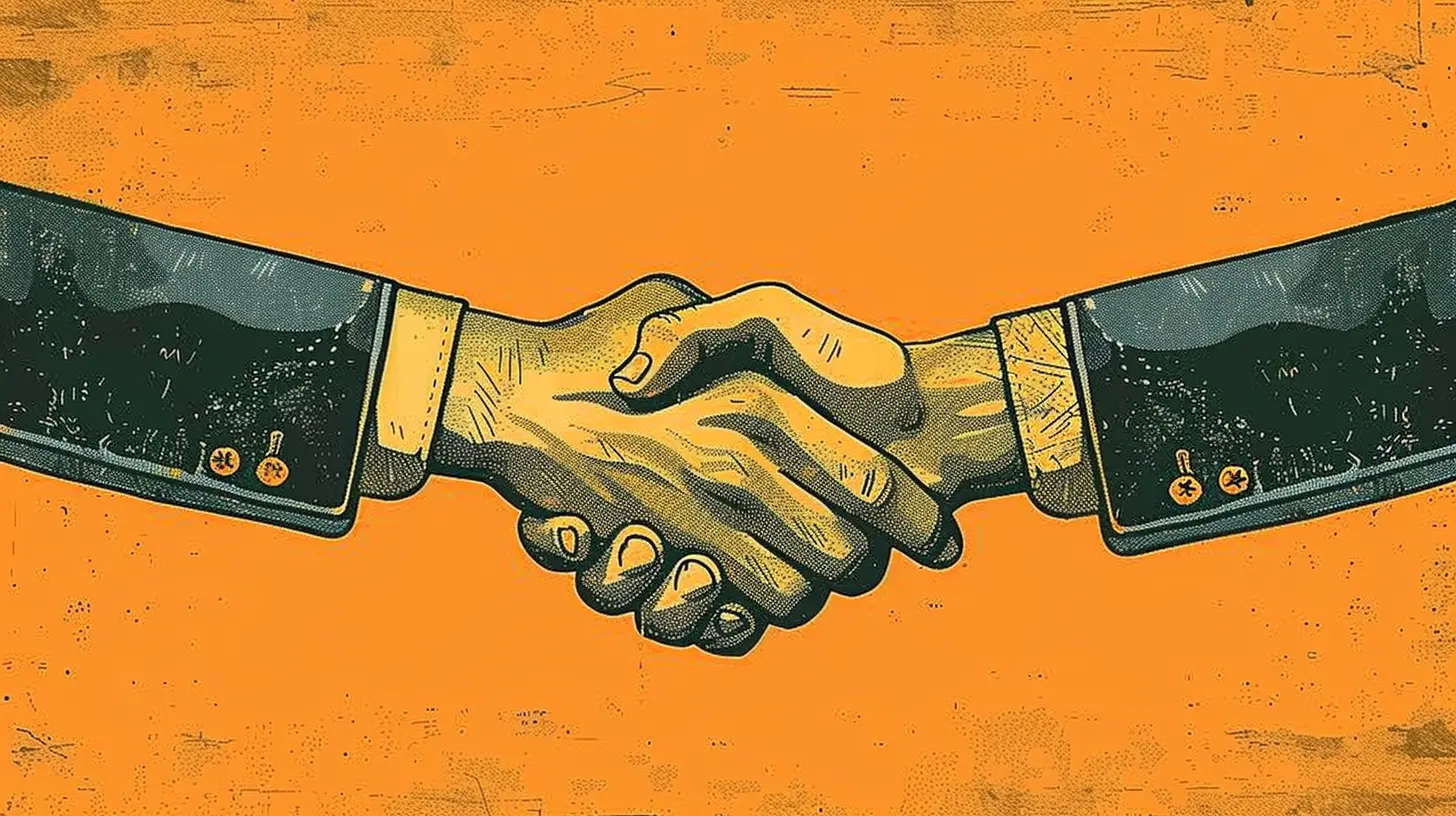Negotiation Tactics for Entrepreneurs: Closing the Deal
27 October 2025
Let’s face it—negotiation is one of those skills every entrepreneur needs but many dread. It’s not just about shaking hands and exchanging pleasantries. It's a game of strategy, psychology, and patience. Whether you're hammering out a deal with a supplier, finalizing a partnership, or trying to land your biggest client yet, your ability to negotiate effectively can make or break your business.
This guide is your no-fluff, straight-talking roadmap to negotiation success. We're diving into the core tactics that help entrepreneurs not only survive negotiations—but walk away with a deal that works in their favor. So grab your coffee, tune out the distractions, and let’s jump in.
Why Entrepreneurs Need Sharp Negotiation Skills
You might have the most ingenious product on the planet, a killer business plan, and a logo that makes Apple jealous—but without strong negotiation skills, you’re basically paddling a canoe with a spoon.Negotiation touches every corner of your business:
- Pricing with suppliers
- Terms with investors
- Deals with clients
- Hiring top talent
- Buying services and software
In short, every conversation where different sides want different things? That’s a negotiation. And if you can't close strong deals, you'll be leaving money, control, and growth potential on the table.
1. Preparation Is Your Superpower
Ever walk into a room and felt totally unprepared? Anxiety kicks in, your words fumble, and suddenly, you've agreed to something you didn't want. Don’t let that happen when you're negotiating.Do Your Homework
Before you even think about the meeting, load up on information:- Who are you negotiating with?
- What do they care about?
- What’s their budget, pain points, or past deals?
- What are the industry standards or benchmarks?
The more you know, the more leverage you have. Knowledge = power.
Set Clear Goals & Limits
Know what you want. Not just your ideal outcome, but your walk-away point. What’s the best deal? What’s the minimum you’ll accept? If you don’t define your boundaries, you’ll likely blow right past them.Think of this like going into a grocery store hungry and without a list—you’ll end up with way too much junk you didn’t plan for.
2. Master the Art of Listening (Yes, Listening!)
Ironically, the best negotiators don’t talk the most—they listen.Active Listening Builds Trust
When you genuinely listen, your opponent feels heard. And when someone feels heard, the walls come down. That’s where trust and honest conversations begin.Pro tip: Don’t interrupt. Paraphrase what they say. Ask follow-up questions. Show empathy.
Listening = Opportunity Spotting
When you’re tuned in, you can spot opportunities others miss. Maybe they're more flexible on price than they initially let on. Maybe there's a way to structure the deal that works for both sides. Listen carefully, and the gold starts to shine.
3. The Power of Silence and Pauses
Here’s a killer move: say your piece, then stop talking.Most people are uncomfortable with silence. It makes them nervous, so they fill it. And those nervous rambles? They often lead to valuable intel or even concessions.
Let silence do the heavy lifting.
4. Use Anchoring to Steer the Conversation
Anchoring is a psychological trick where the first number tossed out becomes the “reference point” for the rest of the conversation.Be the First to Set the Tone
If you name your price first, you can establish the framework of the entire discussion. Let’s say you’re pitching a service and you say, “Our typical projects are in the $15,000 to $20,000 range.” Boom—now anything under $15K suddenly seems like a bargain.Use anchoring wisely, and you’ll steer the entire tone and direction of the negotiation.
5. Frame Your Offer Around Their Needs
This one’s gold. Don’t sell what you want—sell what they need.Speak Their Language
Are they budget-conscious? Focus on long-term savings. Are they worried about risk? Emphasize guarantees. Do they need to move quickly? Highlight your responsiveness.If you frame your offer around what matters to them, the deal becomes a solution, not an expense.
6. Always Create a Win-Win (Not a Win-Lose)
Too many entrepreneurs approach negotiations like a war—somebody wins, somebody loses. That mindset causes friction.Shift to Collaboration
Instead, see yourself on the same team facing a shared problem: "How can we structure a deal that gets us both what we want?"This builds goodwill, long-term relationships, and better deals. Plus, people are more likely to honor agreements they feel good about.
7. Use Multiple Options to Avoid Deadlocks
Ever been locked in a back-and-forth over one point? It’s frustrating. The fix? Present multiple options.The Power of Choice
Instead of saying, “Take it or leave it,” offer choices:- Option A: Lower price, longer delivery
- Option B: Higher price, added perks
- Option C: Flat rate, recurring service
Suddenly, it’s not “yes or no”—it’s “which works best for you?” That mental shift can break deadlocks and make both sides feel more in control.
8. Don’t Be Afraid to Walk Away
This is the hardest one, but also the most powerful.Know Your BATNA (Best Alternative to Negotiated Agreement)
In plain English: what’s your Plan B if the deal falls through?When you have a solid alternative, you negotiate from a place of strength. When you’re desperate—not so much.
And sometimes, walking away is the best move. If the deal doesn't serve your business or values, cut loose. There are always more opportunities on the horizon.
9. Manage Your Emotions
Negotiating can be intense. But if you let frustration, anxiety, or ego take the wheel—you’ll crash the deal.Stay Cool, Stay Curious
If things get tense, don’t go on the attack. Ask questions. Stay curious. Say things like, “Help me understand…” or “Can we unpack this a bit more?” That shifts the conversation from emotional to collaborative.Think of yourself as a poker player: calm, collected, and calculated.
10. Close With Confidence
You’ve done the dance. Now it’s time to close.Don’t Be Vague
So many deals fall apart at the finish line because nobody nails down the details. Nail. It. Down.Clarify everything:
- Payment terms
- Delivery timelines
- Responsibilities
- Milestones
Put it all in writing. Get signatures. Confirm next steps. Don’t leave room for “I thought you meant…”
Follow Up Like a Pro
Send a thank-you email. Recap the terms. Set expectations. This builds trust and shows that you’re not just professional—you’re invested.Negotiating in the Digital Age: Email, Zoom & DMs
Not every negotiation happens in a boardroom anymore. Sometimes it’s over email chains, Slack channels, or 20-minute Zoom calls.Tactics Still Apply
- Be strategic about timing (don’t respond instantly)- Use bullet points to emphasize key points
- Reiterate agreements in writing
- Be intentional about tone (especially in email)
And please—don’t try to negotiate serious deals solely by text or DM. It’s too easy to misread tone and miss nuance.
Final Thoughts: Show Up Like a Boss
At the end of the day, negotiation is a skill. It’s not about being aggressive or manipulative—it’s about knowing your worth, understanding others’ needs, and finding smart solutions.Entrepreneurship isn’t just about having the best idea—it’s about having the right conversations. You don’t need to be a fast talker or seasoned executive. You just need to be prepared, present, and persuasive.
So next time you pull up a chair to the bargaining table, remember: you’ve got more power than you think. Use these tactics, stay calm, and close that deal like the savvy entrepreneur you are.
all images in this post were generated using AI tools
Category:
NegotiationAuthor:

Caden Robinson
Discussion
rate this article
1 comments
Katie Nelson
Negotiation is like a dance—sometimes you lead, sometimes you follow, and occasionally, you trip over your own feet! Just remember: every great deal starts with a good two-step and a bit of charm!
November 1, 2025 at 1:43 PM

Caden Robinson
Absolutely! Negotiation is indeed a delicate balance of leading and adapting, with charm playing a key role in sealing the deal. Great analogy!


